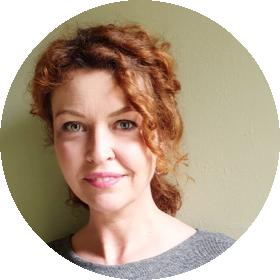
By Lenka Boswijk
How do we tell the audience of our museums the personal stories of artists that were suppressed by the state? How to shine light on the lives of people who were sent to the Gulag labour camps? How to tell stories of the past when tangible artefacts are hard to find? These are questions the Association of Russian Museums of Memory and its members face on a daily basis.
Visitors programme
It does not prove to be easy to tell the stories of tragic historical events in a country that still struggles with freedom of speech and in which the audience is not always ready to hear about these topics. In the format of a DutchCulture visitors programme, Nadya Maximova (responsible secretary of the ARMM) and Svetlana Prasolova (education staff of the Anna Akhmatova Museum at the Fountain House) met with museum professionals in the Netherlands and got a chance to see, hear, taste and experience how Dutch museums and cultural organisations deal with telling painful stories of the past.
Sharing hidden stories
Founded by the State Gulag Museum, the ARMM is a platform for the preservation of cultural heritage in the field of memory and for the development of new principles, methods and technologies in this field. The Anna Akhmatova Museum is one of the members of the association. In the former apartment of poetess Anna Akhmatova in Saint Petersburg, the museum preserves her poetry and the heritage of other poets who suffered from political repression. Its focus is to preserve and share their personal stories, which were hidden to society due to historical, political and social reasons.
Broaden the audience
The ARMM aims to unite museums in the field of memory, and finds ways to tell difficult stories of society's past and rethink them in name of the future. By organising annual seminars and by reaching out to local museums, the association helps the staff of memory museums to understand tragic historical events and to present these stories to a broad audience. One of the main topics Russian museums have to deal with is the history of the Gulags, the labour camps of the Soviet era.
The stories of two Annes
When visiting camp Westerbork in the north of the Netherlands, Nadya Maximova and Svetlana Prasolova found quite some similarities in the difficulties the organisations face when it comes down to storytelling. For example, how does one tell stories from the past when there are no remaining objects and there are no pictures left to illustrate the story? Many similarities can also be found in the stories of the two Annes: Anne Frank and Anna Akhmatova, who both wrote about the tragic events of their time and had to hide for the regime.
Victims' names
Prasolova found another similarity in how we deal with tragic events in history, unexpectedly, on the streets of Amsterdam. Along the Nieuwe Keizersgracht she saw the names of victims of the Jewish persecution at the canal wall (de Schaduwkade). In Saint Petersburg her own house is part of the project Last Address, which puts the names of victims of political repression in the twentieth century on the buildings where they got arrested and never returned to.
Commemoration
Maximova and Prasolova were also surprised by how the Dutch deal with commemoration and storytelling. According to them, the educational programs and approach of the National Committee of 4 and 5 May would not be possible on such a big scale in Russia. In Russia, the Victory Day parade to celebrate the victory of the Great Patriotic War (the war between Nazi Germany and its allies against the Soviet Union during World War II), is still one of the biggest annual celebrations but almost no attention is paid to its victims.
Ongoing dialogue
As a result of the trip, Maximova and Prasolova shared their experiences with the other member museums of the association. Maximova will also use the information she gained during meetings with Dutch experts as input for the annual conference of the ARMM. Together, the collaborating museums find ways to keep the dialogue going about these controversial historical topics. They notice that in spite of the encountered difficulties, they are taking steps to collect, preserve and communicate the memory of the past and tell the personal stories of people who were suppressed by the state. As a visitor of the state Gulag museum wrote in the guestbook: “Ask questions, remember and never agree with terror!”
DutchCulture would like to thank Anne Frank House for collaborating on this working visit.
Check out the complete overview of Dutch cultural activities in Russia in our database. If you are a cultural professional who wants to cooperate with Russia, feel free to contact our Russia advisor Tijana Stepanovic.
